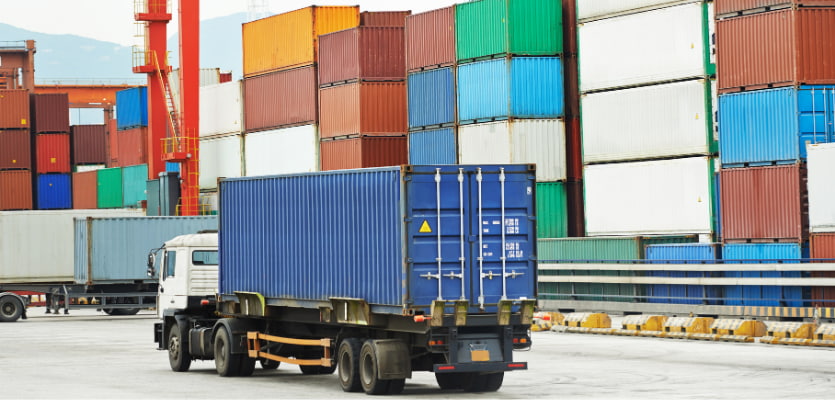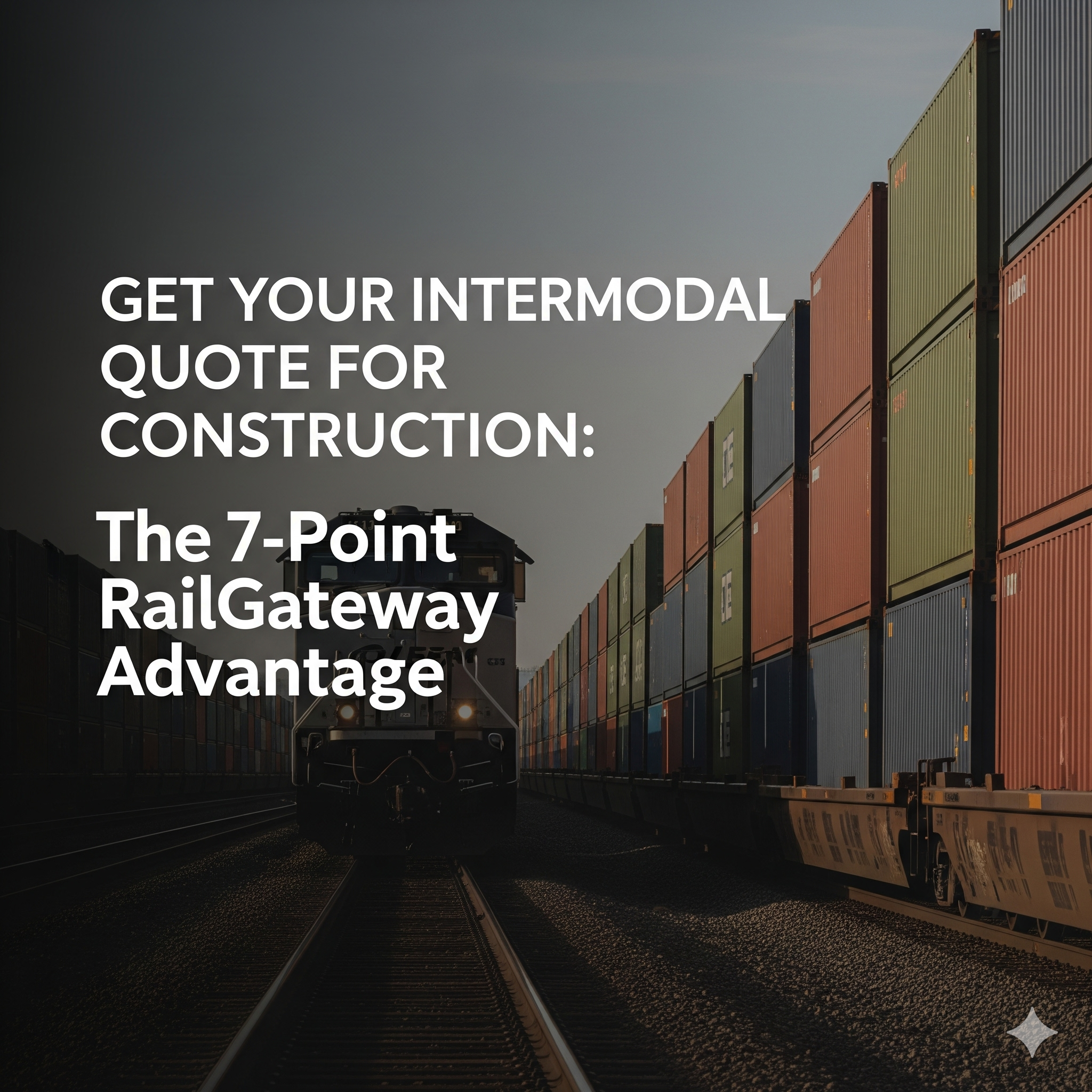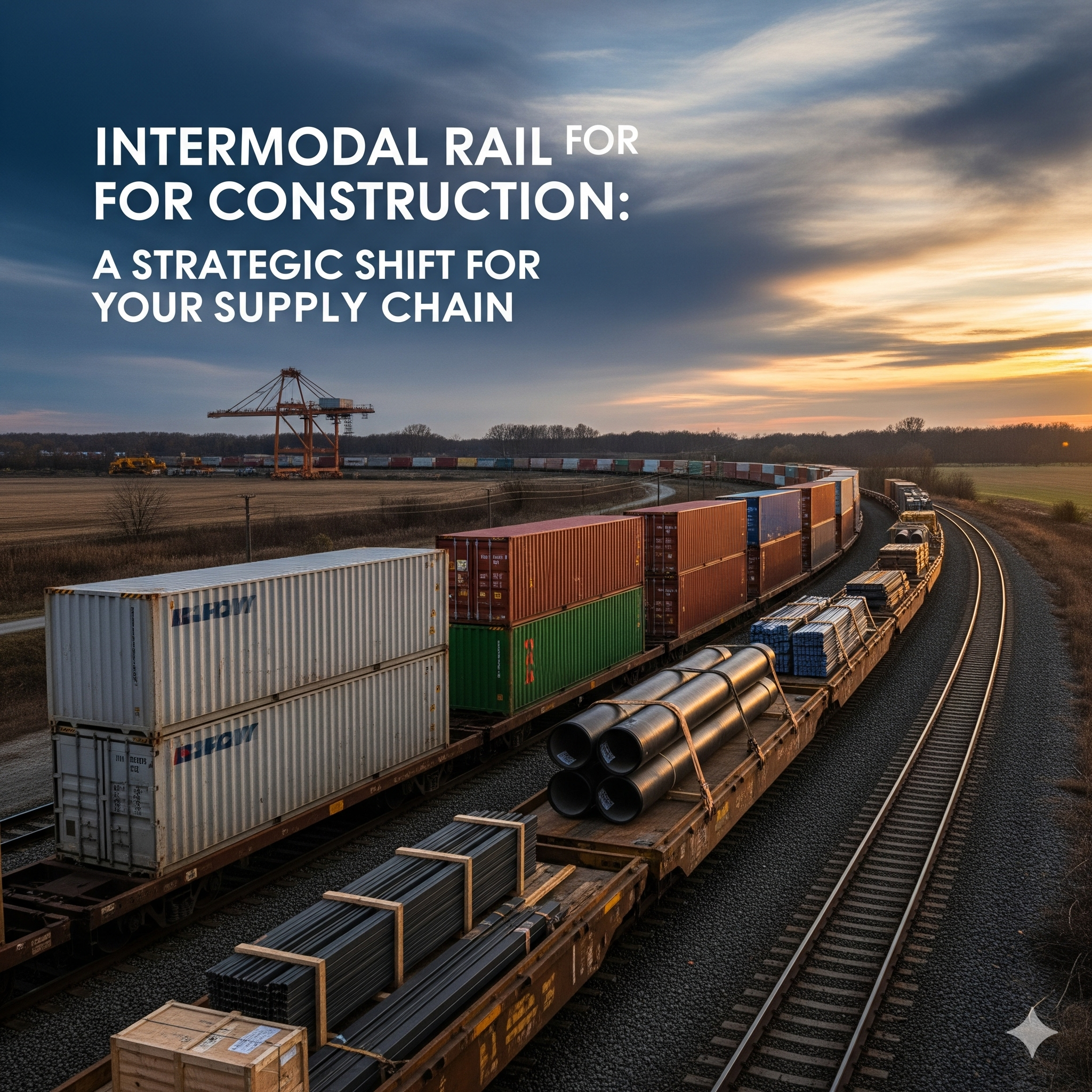You have done the essential, foundational research. You’ve journeyed from understanding the gauntlet of hidden risks in the Canadian construction...
Continue ReadingIntermodal Rail Shipping
for Agriculture
Because you're not just shipping - you're fueling Canada’s food supply chain.
You’re moving grain, seed, agri-inputs, or packaged food products – and every load needs to arrive intact, on time, and without added cost.
One late container, spoiled shipment, or damaged pallet doesn’t just impact delivery – it disrupts harvest cycles, breaks distributor trust, and hits your margins hard.
RailGateway delivers specialized full container load (FCL), intermodal rail shipping for agriculture and agri-food,
trusted by producers, processors, and exporters who demand reliability, reach, and real supply chain efficiency – coast to coast.
Cut Costs

Up to 40% cheaper than
Over-The-Road shipping
Save Time

Book Shipments in minutes.
Get freight moving with minimal lead time.
Ship Smarter

Expert Support, Every Step: Real people — no call centers or bots, just Great Canadian Service
Full Container Load (FCL) Intermodal Rail Shipping
RailGateway specializes in Full Container Load (FCL) intermodal rail shipping which offers a dedicated and cost-effective solution for businesses moving large volumes of goods. With FCL, your cargo occupies an entire shipping container, ensuring secure and direct transport from origin to destination without consolidation with other shipments. This minimizes handling, reduces the risk of damage, and often translates to faster transit times compared to less-than-container-load (LCL) options.
At RailGateway, we leverage our extensive network and expertise to manage every aspect of your shipment, from container booking and drayage to final delivery. Whether you’re shipping across Canada or bringing product inbound from Mexico and along the Mississippi Corridor, we streamline the process, offering reliable scheduling, competitive rates, and real-time tracking to give you peace of mind. Choose FCL rail with RailGateway for a robust, efficient, and environmentally friendly way to transport your valuable cargo.

Trusted by Canada’s Agriculture and Agri-Food Industry for Intermodal Rail Shipping
How it Works
Get a Quick Quote

Book With Ease

Track in Real Time

Why Agriculture Professionals Choose RailGateway

Reliable Coverage Where It Counts
From Prairie farms to coastal ports, RailGateway delivers seamless intermodal service across Canada and deep into the U.S. agri corridor — including key connections along the Mississippi. We get your freight where it needs to be, without detours or delays.
Lower Shipping Costs, Higher Margins
Reduce transportation costs by up to 40% compared to full truckload — without sacrificing delivery windows, cargo care, or reliability. More efficiency, less overhead.
Agri-Focused Freight Expertise
With over 30 years in rail and logistics, we understand the tight timelines, seasonal surges, and regulatory demands of the agriculture and agri-food supply chain. We don’t just move freight — we move it right.
Streamlined, Stress-Free Shipping
From booking to delivery, we simplify intermodal logistics so your team can stay focused on growing, processing, and distributing — not chasing down carriers or juggling paperwork.
Fast, Predictable Transit Times
Door-to-door service that competes with truckload speeds, backed by proactive updates and real-time tracking. Fewer unknowns. Fewer phone calls. Fewer delays.
Built for Sustainability and Scale
Intermodal shipping lowers your carbon footprint and scales with your operation — whether you’re moving packaged food, seed, inputs, or temperature-sensitive goods across provinces or borders.
Preferred Partners of CN Railway & CPKC Railway
As official partners of Canadian National Railway (CN Intermodal) and Canadian Pacific Kansas City (CPKC Itermodal), RailGateway unlocks volume-based discounts and nationwide coverage for your business.
These long-standing partnerships allow us to offer:
- Best-in-Class Coverage & Rates
- Priority rail access across Canada and into the U.S.
- Unmatched reliability and scheduling
- Lower rates passed directly to you
Whether you’re shipping from Toronto to Vancouver or Calgary to Chicago, we’ve got you covered.
Let our trusted rail partners go to work for your bottom line.
5 Star Reviews

Our five star reviews speak for themselves. Check out what other businesses are saying about their experience with RailGateway.
Have Questions?
Check out our Intermodal Frequently Asked Questions page, or contact one of our intermodal experts to learn more about our services.
FAQs
Intermodal rail is ideal for packaged, palletized agricultural goods and agri-food products — including processed foods, temperature-sensitive items, fertilizers, seed, and farm supplies. We do not handle bulk grain or loose commodities. efficiently between truck and train, reducing handling, delays, and risk of damage.
Intermodal can reduce costs by up to 40% while maintaining comparable transit times and reliability. It’s especially efficient for longer hauls and recurring shipments — and it’s more scalable during peak seasons.
Yes — we offer temperature-controlled container options and secure rail transport for sensitive agri-food freight. From packaged meats to dairy or dry goods, we ensure safe handling throughout the journey.
Absolutely. We serve customers across Canada and the U.S. agri-food corridor, including coast-to-coast Canadian coverage and access through key U.S. intermodal hubs.
It’s fast and straightforward. Just fill out our quote form with your origin, destination, freight type, and volume. Our team will follow up with pricing and transit details — no guesswork, no delays.
Intermodal shipping is the movement of freight using two or more modes of transportation—typically rail and truck—without handling the actual cargo when changing modes. Your goods are loaded into a standardized container that moves efficiently between truck and train, reducing handling, delays, and risk of damage.
- Cost savings over long distances
- Reduced carbon footprint (rail is 3–4x more fuel-efficient than trucking)
- Improved security and reduced handling
- Reliable transit times through scheduled rail networks
Intermodal is ideal for dry goods, non-perishable packaged products, building materials, and other full truckload freight that doesn’t require special handling. Temperature-controlled or time-sensitive shipments can also be accommodated with planning.
Not necessarily. For longer distances, especially across provinces or cross-border, intermodal can be as fast—or faster—than trucking, thanks to efficient rail routes and lower chances of delays. Plus, it’s more cost-effective and eco-friendly.
Intermodal Rail Shipping Resources
Intermodal Rail for Construction: A Strategic Shift for Your Supply Chain
In our previous discussion, we delved into the five critical supply chain challenges that are currently defining the landscape of...
Continue ReadingConstruction Logistics: 5 Critical Supply Chain Challenges for 2025 in Canada
A mastery of construction logistics has become the pivotal factor in the success and profitability of projects nationwide. The Canadian...
Continue Reading




